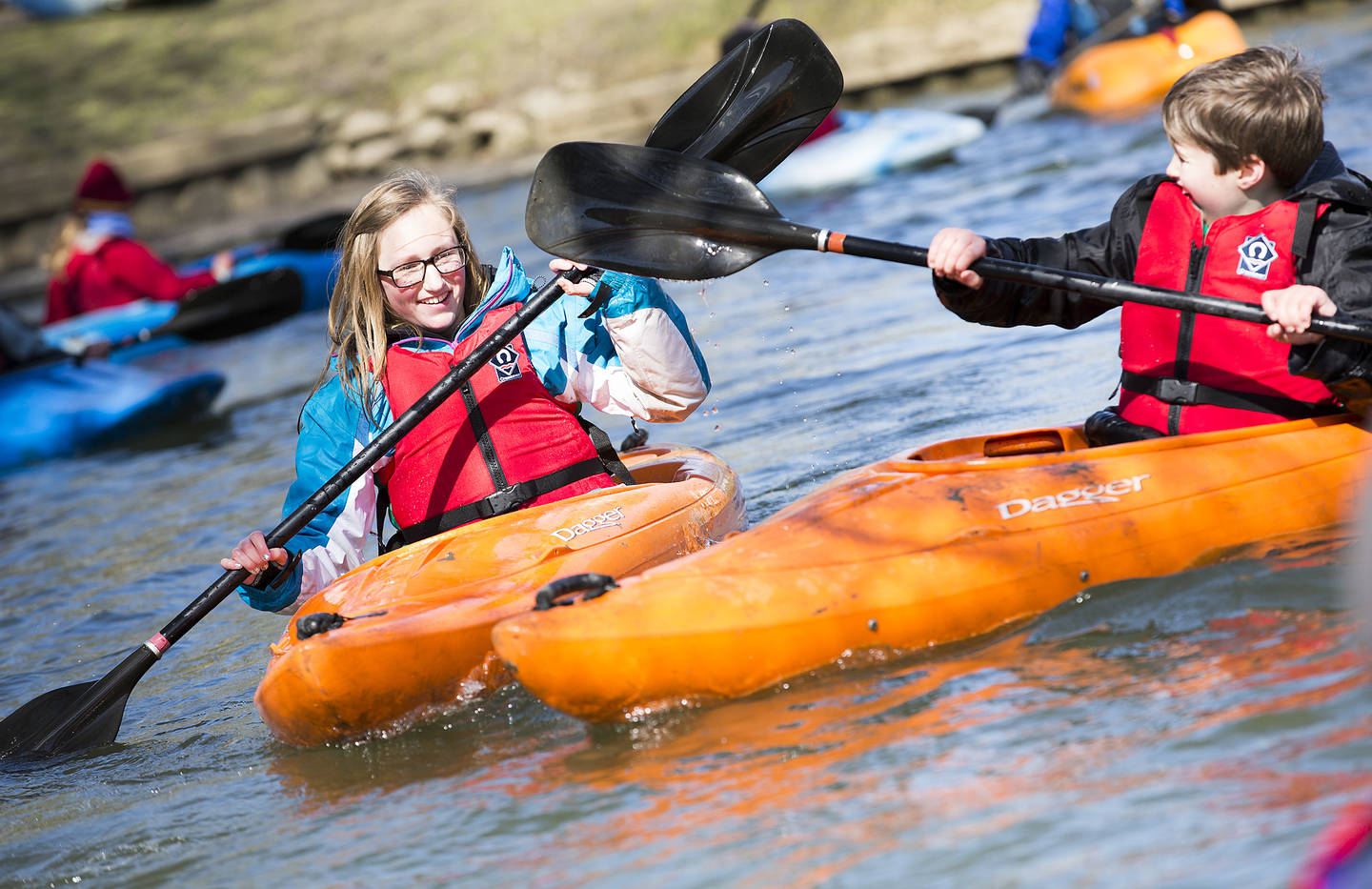Latest results indicate ideal time to embrace new strategies
The English Federation of Disability Sport (EFDS) continues to be concerned about the lack of progress in attempts to increase the number of disabled people who regularly take part in sport (9 June 2016).
Although stabilising from the fall shown in the previous survey, Sport England’s latest Active People Survey shows that there is still a need for solutions that fulfil disabled people’s wishes more effectively.

Whilst the number of people overall playing sport once a week every week has increased by over 340,000 in the last year, there is a sign of stability with a small reduction in the number of active disabled people. Figures show it is down 2,400 in the last year to 1.56 million. Over the same period, last year, the decline was 37,300.
EFDS shares Sport England’s desire to significantly increase the number, rather than accept the flat trend as well as reducing the gap between disabled people's and non-disabled people’s activity. It remains the case that less than half the number of disabled people take part in sport or physical activity for 30 minutes once a week compared to non-disabled people. We also need to analyse the figures for specific sports and impairment groups to help all parties understand where the reductions are.
The statistics are disappointing when we know there is latent demand from disabled people. In EFDS’s 2013 Lifestyle Report, it showed that seven in ten disabled people want to be more active. Other insight highlights, especially in the successful EFDS Motivate Me and Talk to Me reports, that whilst many opportunities exist, the low participation numbers suggests that either disabled people are unaware of opportunities available to them or what they are offered is not appealing enough.
Sport England recently unveiled their four-year plan, which will help deliver against the five health, social and economic outcomes set out in the Government’s Sporting Future strategy. EFDS believes providers need to embrace this new thinking now and make changes imminently, rather than waiting for the next results to monitor achievement on the same programmes.
Barry Horne, Chief Executive for EFDS, said:
“Those who provide opportunities need to be much more proactive in implementing new approaches that will better engage disabled people if they are to ensure that everyone can be active for life. Although, in the overall scale of numbers, this figure does not look too significant, it is unacceptable that while the figures rise for non-disabled people, they drop for disabled people.
He continued:
“We know some providers are beginning to call upon our insight, resources and expertise, but we encourage more to follow. It will take significant changes to improve the low participation numbers so more disabled people consider, let alone take part in, the opportunities available. Real change means a shift in attitudes and approaches to engage effectively more disabled people. It also means improvements to the environments where everyone can be happy, healthy and active.
“In our experience, it is often providers’ confidence that needs addressing in how to deliver better opportunities for audiences, including disabled people. Our own focus complements Sport England’s new strategy by concentrating on the outcomes for individuals and working with organisations to change how effectively they respond to those desires.”
EFDS continues to lead the way in the research, engagement and marketing work. Some of our successful resources include:
- A range of research reports, including the Talk to Me report and principles. For this report we worked with providers and participants to generate ten key principles, which if followed, should help providers improve their offer to disabled people and make it more appealing. The report goes through each principle in detail, providing evidence of what disabled people are looking for and recommendations of how to meet expectations.
- Our engagement and partnerships programme across England. We have a team of Engagement Advisors to support local and national work. The Engagement Advisors cover nine regions across England. Along with our National Advisors they support key strategic partners, including County Sports Partnerships (CSPs) and National Governing Bodies (NGBs) of sport. Their work helps these partners to be more effective in enabling more disabled people to be more active.
- Our marketing and communications team works with and supports providers with practical support and resources on how to promote opportunities more effectively. This includes our successful Inclusive Communications Guide and animation film.
- EFDS works in partnership so more young disabled people can enjoy sport and physical activity. Under the banner of Sainsbury’s Active Kids for All, we provide training for schools and community groups to develop inclusive PE, sport and physical activity for disabled people.
- EFDS manages the Inclusive Fitness Initiative (IFI), which has been established for over 10 years. This programme supports leisure centres to become more welcoming and accessible environments to disabled people.